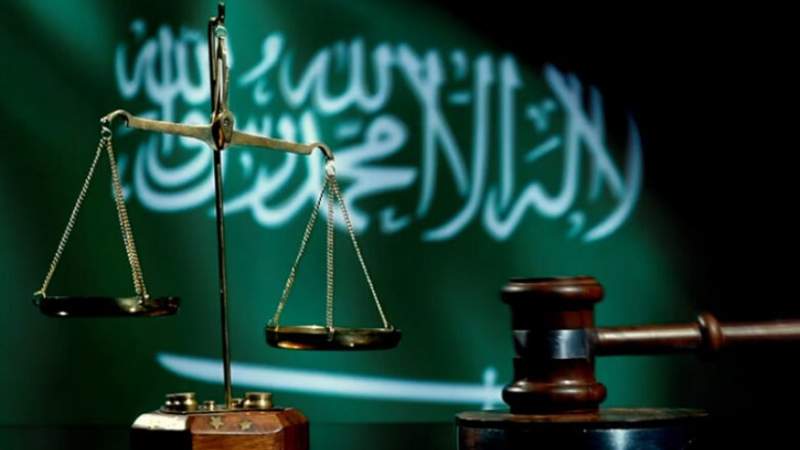Saudi Arabia Should Protect Rights

News - Middle East - Saudi Arabia: Saudi Arabia should ensure that a forthcoming penal code fully complies with international human rights standards, Human Rights Watch said. The authorities announced in February 2021 that justice reforms, including the country’s first written penal code for discretionary crimes – crimes whose punishments are not specified in sharia law – will be introduced this year, but no details have been published.
It will be important to clearly define all provisions that criminalize conduct. The penal code should not codify existing arbitrary charges as wide-ranging, catchall offenses that criminalize the rights to freedom of expression, association, and assembly, among other rights. Saudi Arabia should also use this opportunity to completely abolish the death penalty. The government should end its repression of independent civil society and critical voices so they can provide independent perspectives to increase the chances that reform efforts will be successful.
“To be fair, independent and effective, Saudi Arabia’s justice system is in dire need of a transformational change, but the repressive climate in which new laws are drafted don’t inspire confidence,” said Michael Page, deputy Middle East director at Human Rights Watch. “The fear is that Saudi Arabia will codify abusive practices that have developed in the decades-long absence of a written penal code.”
Human Rights Watch has repeatedly criticized rampant abuses in Saudi Arabia’s criminal justice system, including long periods of detention without charge or trial, denial of legal assistance, and the courts’ reliance on torture-tainted confessions as the sole basis of conviction. The violations of defendants’ rights are so fundamental and systemic that it is hard to reconcile Saudi Arabia’s criminal justice system with a system based on the basic principles of the rule of law and international human rights standards.
Human Rights Watch, based on its past documentation and in consultation with Saudi human rights activists abroad, has identified five key reforms that should be incorporated for the promised written penal code to satisfy international standards.
Ensure that all provisions in the penal code and other relevant laws criminalizing conduct or punishing conduct considered criminal are codified. All elements that constitute a crime and its potential punishment should be clearly identified so that an ordinary person could determine if their acts would constitute a criminal offense, and the crime should be clearly recognizable under international law.
In the absence of a written penal code, some Saudi judges have set out to prove that a defendant had engaged in a certain act, which they then classify as a crime, rather than proving that the defendant had committed a specific crime set out in the law. Previous court rulings do not bind Saudi judges, and there is little evidence that judges seek consistency in convicting or sentencing for similar crimes. Existing laws, including the notoriously abusive counterterrorism law and the anti-cybercrime law, include vague and overly broad provisions that have been widely interpreted and abused. Citizens, residents, and visitors have no means of knowing with any precision what acts constitute a criminal offense. People can also be punished more than once for the same offense.
Do not include provisions that permit the government to arbitrarily suppress and punish people for peacefully expressing their views, in breach of international legal obligations, including on grounds of endangering “national security.”
Saudi courts convicted many others on charges entirely unrecognizable in international law. In late December 2020, following a rushed trial, the specialized criminal court convicted the prominent women’s rights activists Loujain al-Hathloul on a host of charges entirely related to her peaceful human rights work. Charges included sharing information about women’s rights in Saudi Arabia with journalists, Saudi activists abroad, diplomats, international bodies, and human rights organizations.
Saudi Arabia’s penal code should define “national security” and the breaches against it in narrow terms that do not infringe on internationally guaranteed rights of free expression, association, and assembly. The penal code should not criminalize “insults” against religious figures and government leaders.
Saudi Arabia should also amend or abolish already-introduced abusive laws, including the counterterrorism law, the cybercrimes law and other legislation that permits the government to arbitrarily suppress and punish people for peaceful political expression.
Do not include provisions that violate people’s rights including to privacy, bodily autonomy, health, and nondiscrimination.
Saudi Arabia punishes people for a range of “moral crimes” that criminalize private consensual relations such as khilwa (meeting of an unrelated man and woman, especially alone), zina (extramarital sex), sorcery and witchcraft, abortion, and other acts relating to expression of nonconforming gender identity or sexual orientation.
Criminalizing these activities contravenes international standards and charges are often applied in a manner that discriminates against women. The charges also can be used to prosecute victims of sexual violence or trafficking.
Source: Human Rights Watch
#Saudi Arabia #Human Rights About 1 year-
06:44
Hezbollah strikes Israel's Hadab Yarin site near southern Lebanon with "appropriate weapons"
03:35
Abdulsalam: Despite global consensus, America opposes all to support Israel and against Palestinians obtaining their basic legitimate rights
03:31
Head of the National Delegation, Mohammed Abdulsalam: We strongly condemn the US veto against full UN membership for Palestine
08:27
Commander of Iranian Army's ground forces Brigadier General Kioumars Heydari: Fake grandeur of Israeli has been shattered
07:29
IAEA confirms no damage to Iran's nuclear sites after "suspicious objects" shot down in Isfahan





